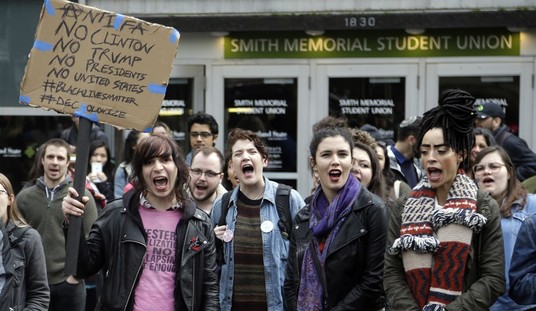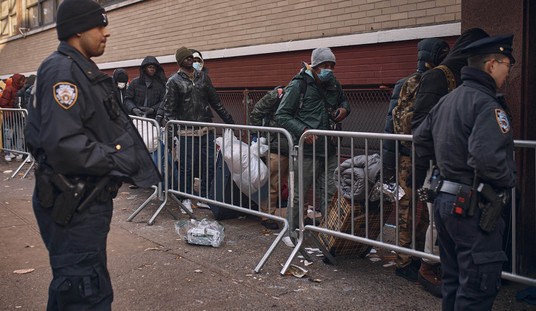If you read all of the gloom and doom headlines from across the country you’ll see a fairly consistent theme. Despite the pandemic dying down in some places (while admittedly surging a bit in others), there are still a lot of businesses that are closed. Workers are stuck on unemployment in droves and many of the smaller employers are reaching the point where the owners aren’t sure if they will ever be able to come back. All of this adds up to a pretty dismal outlook for the economy, at least in the short term.
With that in mind, the Associated Press notes one other headline that’s not making nearly as big of a splash. The stock market is experiencing a significant boom, with the S&P 500 moving into record territory. How can that be? That leads to their headline question. How can Wall Street be so healthy when Main Street isn’t?
The stock market is not the economy.
Rarely has that adage been as clear as it is now. An amazing, monthslong rally means the S&P 500 is roughly back to where it was before the coronavirus slammed the U.S, even though millions of workers are still getting unemployment benefits and businesses continue to shutter across the country.
The S&P 500, which is the benchmark index for stock funds at the heart of many 401(k) accounts, ended Tuesday at 3,380.35 after briefly topping its closing record of 3,386.15 set on Feb. 19. It’s erased nearly all of the 34% plunge from February into March in less time than it takes a baby to learn how to crawl.
Yes, the state of the nation’s economy is pretty poor indeed. But on Wall Street, the bull is roaring and the bear is off hiding in the basement. How can that be?
The economists being quoted by the AP, as always, are able to come up with some magical hand-waving to explain all of this away. Some factors are reasonably solid, including the fact that the federal government has been pouring literally trillions of dollars into a sinkhole to keep the losses to a minimum. Another fairly realistic factor is the way the total value of the market is unevenly divided. Some of the biggest players have been almost pandemic-proof as demand for their goods and services has remained strong. These include Apple, Microsoft, Facebook and Amazon. Meanwhile, most of the mom-and-pop stores that are going under aren’t traded on the New York Stock Exchange.
But that can’t be enough to account for all of this market growth. The same experts go on to note that “hopes for a potential vaccine to halt the pandemic” are on the rise, bolstering investor confidence. Other headlines indicating potential good news for stability toward the end of the year similarly have held off any panic selling.
If you find yourself wondering what headlines like those have to do with the price of rice in China (literally) then you’re not alone. And the harsh reality of Wall Street is that the phrase “the stock market is not the economy” is far more true than you might care to believe. In many ways, the two are almost completely detached.
I’ve long argued that market analysis is more enchantment than economics and obtaining a degree as an economist should be taught in same part of any college program as theology. For old-fashioned, nuts and bolts thinkers like me, the concept of buying or selling stocks in any given company should be fairly simple. You look at the total value of the company including all of its assets, inventory, service contracts and orders for goods and come up with some figure of its net worth. Then you take the percentage of the company that is controlled by stockholders and divide it by the number of shares that are out there. That should give you a rough idea of the value of the stock, right?
Not even remotely close. Think about the last time there was some horrible headline in the news or rumor of some disaster on the horizon or just an alarming tweet from the President’s Twitter account and the market plunged ten percent as a result. Do you really think that General Electric suddenly had 10% less inventory or orders in a matter of one hour or 10% of their staff suddenly walked off the job? Of course not. The company was worth precisely as much as it was before the bad news hit.
The reason their stock tanked is that all of the stocks on the market are unbound from reality. Their value is derived from what people believe they are worth. Or, to be more specific, what a very select group of people who control the ebb and flow of such matters believe they’re worth. And if that group of people changes their minds about what they believe over breakfast tomorrow, the sudden transition will reverse itself. It’s not even fair to equate Wall Street to a casino because at least the casino’s chips have a fixed value that doesn’t change from day to day beyond variations in the strength of the U.S. dollar.
The only thing you can be sure of is that when the market undergoes a massive shift on short notice – in either direction because the direction doesn’t matter – there is a group of people out there who just made a ton of cash. And if you’re not a member of the elite group I referenced above, you weren’t one of them.







